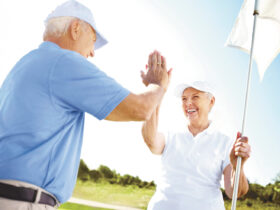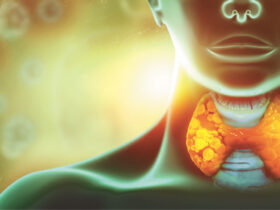The After Effects of Concussions Are More Common Than You May Think!
 George* owns a successful construction business, but he couldn’t enjoy time with his family or reap the success that his business offered him because of persistent anxiety and depression. He was on several medications that only partially helped him cope. It had been a long time since George felt the joy of life. At George’s Brain Wave Center intake consultation, we learned that he had a history of multiple head traumas from high school sports. Even though those events occurred many years ago, George’s EEG showed abnormalities that were consistent with head trauma. He began a series of PrTMS treatments to bring his brainwaves back into healthy balance. Within a few weeks, George was feeling like himself again with better energy, more restful sleep, no depression, and little to no anxiety.
George* owns a successful construction business, but he couldn’t enjoy time with his family or reap the success that his business offered him because of persistent anxiety and depression. He was on several medications that only partially helped him cope. It had been a long time since George felt the joy of life. At George’s Brain Wave Center intake consultation, we learned that he had a history of multiple head traumas from high school sports. Even though those events occurred many years ago, George’s EEG showed abnormalities that were consistent with head trauma. He began a series of PrTMS treatments to bring his brainwaves back into healthy balance. Within a few weeks, George was feeling like himself again with better energy, more restful sleep, no depression, and little to no anxiety.
*not his real name
If you think concussions occur only in pediatrics, football players, or the military, think again! Concussions, a type of traumatic brain injury (TBI), can occur across our lifespan. They’re caused by a traumatic bump or blow to the head or neck that causes the head and brain to move rapidly back and forth in a whiplash-like fashion. The sudden movement causes our brain to bounce and twist around inside the skull, stretching and damaging the delicate cells and structures inside. This damage can cause physical and chemical changes in your brain and affects how it functions.
Vehicle crashes (bikes included), physical altercations, contact sports, and falls make up the most common causes. But, let’s not discount hitting our head when unloading the kayak or that hard knock of our noggin on the cupboard door. Remember that you do not need to lose consciousness to sustain a concussion and that concussions can have long-lasting consequences even if there is no blacking out of loss of consciousness
For most young, healthy people, the occasional bump to the head shouldn’t’ be cause for alarm; however, that isn’t always the case. Having an initial concussion sets things up for making future bumps to the head, even minor ones, more impactful and more likely to cause long-term consequences.
Immediately after a head injury, it’s all about observation and early intervention. Early symptoms of a concussion may include dizziness, headaches, and sensitivity to light or noise. But, you can have a concussion and have no initial symptoms whatsoever! Symptoms may not show up for months to years. Some of the long-term symptoms of a concussion include anxiety, depression, having a ‘short fuse” – being quick to becoming angry, slow to find words or thoughts, sensitivity to light or noise, sleep disturbances, overwhelm, and/or inability to cope with stress. Post-concussion syndrome (PCS) can have devastating effects on your emotional and cognitive functioning.
After a concussion, symptoms may initially last hours, days, weeks or longer. The symptoms and the amount of time it takes for them to go away may differ between people and between concussions. Each concussion is different, even for the same person, and the path to concussion recovery will vary for every individual. Most people recover from the initial symptoms within two weeks to a month. An estimated 20 percent of people will experience persistent symptoms of post-concussion syndrome (PCS), where symptoms last for more than 6 weeks and up to many years. Some people have little to any of the classic initial symptoms, but begin to show symptoms months later.
Neurofeedback for Post-Concussive Syndrome.
Concussions result in abnormal brain electrical activity, which may be detected in a Brain Map or a qEEG. These abnormal brain waves are often associated with depression, anxiety and/or overwhelm, and may be present for months to years (sometimes decades) after the head trauma. Neurofeedback is a non-invasive process of retraining your brain’s electrical activity back to a state of healthy regulation.
During a neurofeedback session, clients wear a fitted cap that is connected to a computer that uses sensors to monitor brainwaves (think of a wired hat). While the client watches a video, the computer will look for the brainwaves associated with head trauma, anxiety, depression, overwhelm, etc. When the computer detects irregular brainwaves, it will fade the video and sound. This will cause the client to refocus their attention back on the video until the brainwaves return to normal. This can happen hundreds of times during a single session. Eventually, after multiple sessions, the brain learns to maintain brainwaves in a healthy range on its own. As that happens, the client will see a reduction in their PCS symptoms. The best part, results are often permanent.
Personalized repetitive Transcranial
Magnetic Stimulation (PrTMS) for
Post-Concussive Syndrome.
Transcranial Magnetic Stimulation (TMS) is a FDA-approved drug-free, painless, non-invasive therapy that uses magnetic pulses to stimulate activity in the brain. Unlike conventional TMS, where all clients receive the same therapy, PrTMS incorporates diagnostic assessments and a brain function analysis to deliver an individualized TMS treatment.
PrTMS is a simple, safe, and effective way to address post-concussion symptoms. To initially assess brain functions, an electroencephalogram (EEG), will be performed using a fitted cap containing sensors that communicate to a computer. This will measure brainwave activity. The recording takes less than 5 minutes to complete. The data collected is analyzed for ‘concussion bands’ and other signs of abnormal brain function caused by past head trauma. The EEG is used to generate a treatment plan tailored specifically to your brain.
During a PrTMS session, clients relax in a comfortable chair for approximately 20 minutes. A small electromagnet is very lightly placed against the scalp in the areas around the forehead. The electromagnet painlessly delivers a magnetic pulse that re-regulates the nerve cells in the region of the brain affected by the concussion. Normal activities, including driving, can be resumed immediately afterwards.
Nutrition for Post-Concussive Syndrome.
Research points to the importance of nutritional supplements and wise food choices following a concussion. It’s important to focus on anti-inflammatory foods and protective nutrients to balance the brain’s inflammatory response. Sugar, red meat, gluten, many processed and refined foods, as well as caffeine and alcohol are highly inflammatory and lack the nutrients that the brain needs for repair and recovery. Foods that have browned proteins, chips, crackers, or coffee should be avoided. These foods contain advanced glycosylated end products, which may be harmful to the body and brain.
Nutrients, such as those found in green tea, turmeric, fish oils, berries, eggplant, black rice, and broccoli, along with additional magnesium, zinc, selenium, ascorbate, and glutathione precursors, such as N-acetyl-cysteine, may be helpful as part of a comprehensive brain recovery protocol. Lion’s Mane mushroom has neuroprotective effects and reduces the reactive oxygen species in the brain. It also increases the levels of brain-derived neurotropic factor (BDNF) which encourages the growth of new brain cells, especially the myelin sheath, which is often damaged from head trauma.
Foods high in anthocyanins, can benefit the brain, especially, blueberries which have been shown to slow neurodegeneration. Vegetables, particularly the green and leafy ones, are great for many of the brain repair vitamins and minerals (including B7, B12 Vitamin A, and calcium). Fruit and vegetables also provide excellent levels of vitamin C. Nuts and seeds are good for B6, vitamin E, selenium, magnesium, zinc, and omega-3.
The Brain Wave Center
The lasting effects of a concussion can contribute to a wide range of emotional and physical health challenges. Isn’t it time that you found a way to free yourself of depression, overwhelm, anxiety and the other symptoms of post-concussion syndrome? Our Center has a dedicated team of professionals offering innovations in brain health. At the Brain Wave Center, we are focused on assisting everyone in recovering their brain health following a head injury.
Find out today how neurofeedback and PrTMS can help you or a loved one. Call 941-552-4500. We offer brief no-charge initial consultations with our medical director.
The Brain Wave Center
941.552.4500
BRAINWAVECENTERS.COM
640 S. Washington Blvd., Sarasota, Florida 34236







